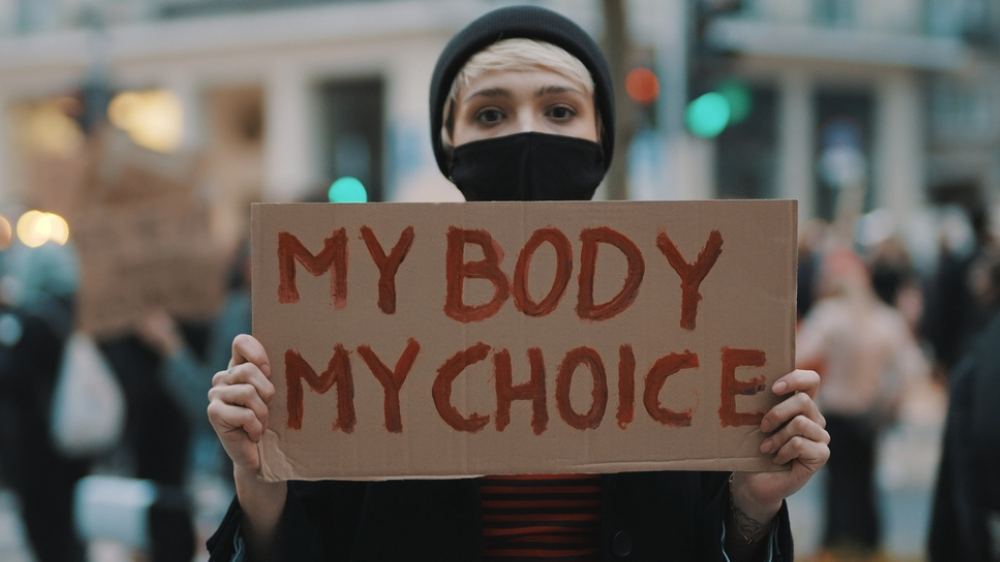Poland and Ireland are both catholic countries. However, they have embarked upon a very different way when it comes to abortion rights, writes researcher Moa Berglund. After the elections, will Poland’s new government ease up the strict rules?
Sexual and reproductive health and rights (SRHR) are a human right, and SRHR is just as important as any other right mentioned in the declarations of human rights and Sustainable Development Goals (SDGs). Despite this, SRHR policies are constantly under threat, especially in conservative, populist, nationalistic, and religious countries that view SRHR policies as a threat to ’family values.’ These influences have long been an explanation for the dramatic shifts in abortion policies across the European Union, despite the EU’s efforts to make them equally accessible.
Can we blame it on religion?
In the discussion about sexual and reproductive health and rights (SRHR) in the European Union, some often see Roman Catholicism as a problem. They notice that countries with lots of Roman Catholics often have strict rules about abortion and SRHR. So, when researching SRHR in EU countries, it is especially interesting to look at Ireland and Poland; as both of these countries have many Roman Catholics. However, what makes this even more interesting is that in recent years, Ireland and Poland have changed their policy about SRHR and abortion, but they went in opposite directions.

In January 2021, the Polish Constitutional Tribunal’s ruling to ban abortion in cases of ”serious malformation of the fetus,” considering it ”incompatible with the Constitution,” was put into effect (European Parliament, 2021). The ”new” Polish abortion policies are very similar to the old Irish policies that were changed in 2018.
Up until 2018, Ireland had a ”protection of life during pregnancy act,” which meant that abortion could only be carried out to ”avert a real and substantial risk to the life of the pregnant woman.” However, in 2018, the government of Ireland passed the new ’Health Act,’ which allows abortion on various grounds, including without restrictions up to twelve weeks of pregnancy (Irish Department of Health, 2020).
The role of feminist theory
To truly grasp the impact on these SRHR policy changes, let’s dig beyond the surface, moving beyond the commonly cited ”religion” argument. Instead, we’ll look into the feminist global political economy (FGPE) theory. The FGPE perceptive has three pillars: Neoliberalism, Household and Social Reproduction, and Reproductive Governance. Together, they offer a fresh perspective on the shifts in abortion policy.
Now, as we navigate the political process through this FGPE perceptive, we uncover a fascinating revelation: a connection between the adoption of the neoliberal agenda and abortion policies. Imagine Ireland and Poland as two explorers on this journey. Ireland, embracing the neoliberal agenda, opened the door to liberal thoughts on sexual and reproductive health and abortion policies. In contrast, Poland ventured down a different path, where neoliberalism paved the way for conservative ideas, ultimately resulting in the tightening of SRHR and abortion policies. Here it gets intriguing; while we can’t definitively claim a direct cause-and-effect relationship between neoliberalism and policy changes, it’s clear that various factors – such as an open and neoliberal society – come into play. Hence these factors shape abortion policies, and the analysis shows that there is a complex web of influences.
Now, let’s turn our attention to the fascinating relation between government approaches and societal progress. It’s essential to recognize that how governments deal with women’s bodies reflects the broader ideological landscape. This means that the influence of the Roman Catholic Church, often held as the sole explanation for these policy restrictions, is just one piece of this intricate puzzle.
Shifting our focus to Poland and Ireland, the 2020s present an exciting narrative. Picture it against the backdrop of a changing European landscape, where neoliberalism, conservative ideologies and populism are gaining momentum. This is where concern grows, witnessing Poland’s government altering fundamental sexual and reproductive rights and imposing restrictions on women’s choices.
As we look ahead, a critical question arises: Will sexual and reproductive health and rights continue to be safeguarded in European countries, such as Sweden and Spain? Or will they face constraints in a political struggle against progressive ideals, potentially encroaching on women’s autonomy? The most obvious hope is for the former, where these rights remain protected and women continue to have control over their bodies.
Moa Berglund
Read more:
|
Uppläsning av artikel
|


